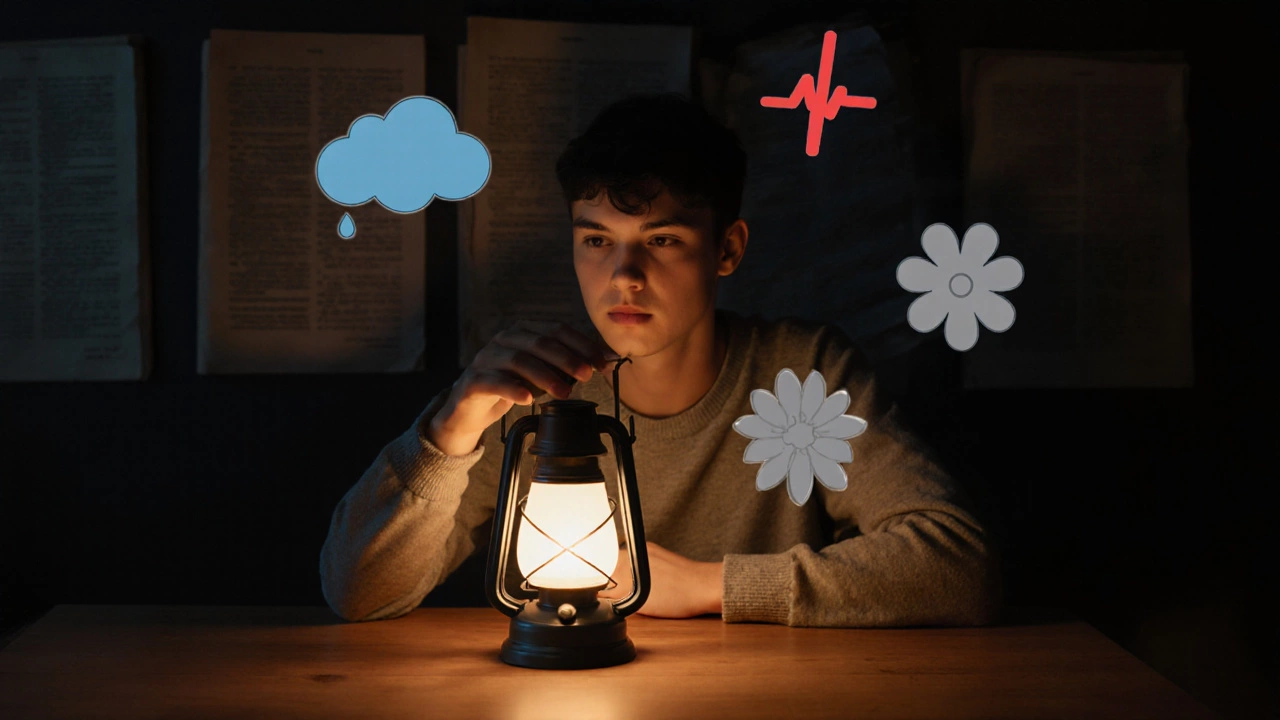Understanding mental health signs: Spot Early Indicators and Take Action
When working with mental health signs, observable changes in mood, behavior, or thinking that may point to emotional distress or a developing condition. Also known as psychological warning signals, they help clinicians and loved ones recognize when professional support is needed.
One of the most effective ways to address these signals is through counseling, a short‑term, goal‑focused conversation with a trained professional. Counseling often targets specific life stressors, teaches coping tactics, and provides immediate relief. In many cases, early counseling stops a mild sign from becoming a deeper issue.
Another key pathway is therapy, a longer‑term, structured treatment that explores underlying patterns, thoughts, and emotions. Therapy can be cognitive‑behavioral, psychodynamic, or integrative, depending on the person’s needs. While counseling tends to be brief, therapy offers the depth required for complex or chronic signs such as persistent anxiety, depressive moods, or intrusive thoughts.
Why early detection matters
Recognizing mental health signs early creates a window for simple interventions. For example, noticing increased irritability, trouble sleeping, or loss of interest can prompt a quick mental health assessment. This assessment, typically conducted by a psychologist or psychiatrist, measures severity, identifies possible diagnoses, and recommends the appropriate level of care. The sooner the assessment happens, the higher the chance that counseling or therapy will be effective.
Clinical research shows that people who act on early signs experience shorter recovery times and less disruption to work, relationships, and daily routines. In practice, someone who feels overwhelmed by work stress might notice racing thoughts and a shaky heart. An assessment can confirm whether it’s acute stress, an anxiety disorder, or the start of a mood swing, guiding the choice between brief counseling and a longer therapeutic plan.
Both counseling and therapy rely on a core set of skills: active listening, empathy, and evidence‑based techniques. Counseling often emphasizes problem‑solving and stress‑management tools like deep breathing or time‑management strategies. Therapy adds layers such as exploring core beliefs, restructuring negative thought patterns, and building long‑term resilience. The two approaches complement each other, and many clinicians blend them based on the client’s evolving signs.
It’s also useful to differentiate between related concepts. psychotherapy, a formal term encompassing various therapeutic modalities aimed at mental health improvement, is sometimes used interchangeably with therapy but often refers to a specific, evidence‑based method. Psychotherapy may include cognitive‑behavioral therapy (CBT), dialectical behavior therapy (DBT), or interpersonal therapy (IPT). Understanding this jargon helps you ask the right questions when seeking help.
Another entity that shows up in many discussions is mental health assessment, a structured evaluation using questionnaires, interviews, or scales to quantify symptom severity. Tools like the PHQ‑9 for depression or GAD‑7 for anxiety give clinicians a clear picture of which signs are most pronounced. These assessments also track progress over time, informing whether a shift from counseling to therapy is warranted.
Practically, you don’t need to wait for a crisis to act on mental health signs. Simple steps include journaling daily emotions, noting any changes in sleep or appetite, and sharing observations with a trusted friend or family member. If signs persist for more than two weeks, consider scheduling a mental health assessment. From there, you can discuss whether counseling’s short‑term focus or therapy’s deeper dive aligns with your goals.
Below you’ll find a curated set of articles that walk you through the nuances of counseling versus therapy, how long therapy typically lasts, and practical tips for recognizing early warning signals. Each piece breaks down complex ideas into easy‑to‑follow advice, so you can decide the right path for your unique situation.






